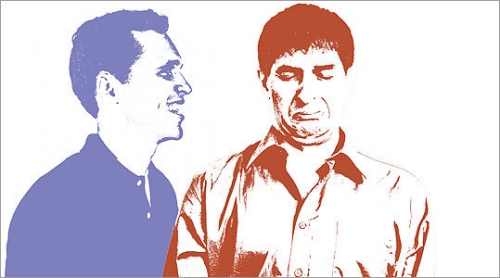
A recent study, conducted by researchers at the University of Michigan Institute for Social Research, has found that college students today are 40 percent less empathetic than they were in 1979, with the steepest decline coming in the last 10 years. From Keith O’Brien at the Boston Globe, “The empathy deficit: Even as they become more connected, young people are caring less about others”:
Perhaps more than any other characteristic, one’s capacity for empathic concern dictates how much one cares about others. Those who score high in empathic concern, according to past research, are more likely to return incorrect change to a cashier, let someone else ahead of them in line, carry a stranger’s belongings, give money to a homeless person, volunteer, donate to a charity, look after a friend’s pet or plant, or even live on a vegetarian diet. And what’s alarming, Konrath said, is that empathic concern has fallen more than any other aspect of empathy. Between 1979 and 2009, according to the new research, empathic concern dropped 48 percent. The results have led to the obvious follow-up questions: What cultural changes may have shaped children in the 1980s and ’90s, giving rise to a less empathetic generation? Why do we care less? And is there any way we can reverse the trend?
Read the rest of “The empathy deficit” here. Although they don’t mention this in this article, other recent studies suggest that meditation works as a way to reverse this trend. This from a 2008 msnbc.com article “Neuroscience may explain the Dalai Lama: A new study reveals that meditation may increase empathy, benevolence”:
When subjects heard the sounds, both groups experienced more brain activity in areas associated with empathy and emotions while meditating than while not meditating. The distressed sounds elicited stronger empathetic responses than the positive and neutral noises, and the brain activity in these regions was much stronger in the seasoned meditators. “The difference was very clear,” Lutz told LiveScience. “We saw significantly more activation in this circuitry in experts than in novices. What is interesting is that the regions that are more activated are the regions which we think should be more important in compassion.”
The lesson? Meditate before you log in next time and make your next Facebook status update, “Just meditated to ensure that I actually care about all you people.”
Thank you for subscribing to Tricycle! As a nonprofit, we depend on readers like you to keep Buddhist teachings and practices widely available.